Keywords: People Smugglers
-

RELIGION
- Frank Brennan
- 24 October 2013
'Here is a pope who is not just about creating wiggle room or watering down the teachings of the Church. No, he wants to admit honestly to the world that we hold in tension definitive teachings and pastoral yearnings — held together coherently only by mercy and forgiveness.' Frank Brennan's Wallis Lecture presented in Hobart on 24 October 2013 and Launceston on 25 October 2013.
READ MORE
-
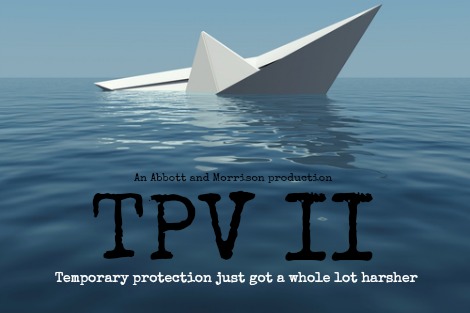
AUSTRALIA
- Kerry Murphy
- 22 October 2013
22 Comments
The new TPV is harsher than the version introduced by the Howard Government, mainly because it has no pathway to a permanent visa — once granted, it is likely that the best you will ever get in Australia is a TPV. The TPV is a punishment, not a deterrent; a cruel visa that reflects the cruelty of the politicians introducing it.
READ MORE 
-

RELIGION
- Frank Brennan
- 10 October 2013
4 Comments
'When confronted with moral evil in public policy, church personnel have a choice: to be prophetic sticking to the moral absolutes, or to be practical engaging in the compromises needed to temper the evil. At the moment, the only political parties not wanting to embrace a short term shock and awe approach are the Greens, the DLP and the Palmer United Party. And neither Christine Milne, John Madigan nor Clive Palmer will ever be prime minister.' Workshop paper from Catholic Social Services Victoria's Listening, Learning and Leading conference, October 2013.
READ MORE
-
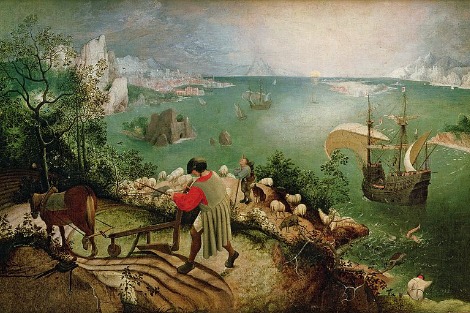
AUSTRALIA
- Maureen O'Brien
- 07 October 2013
13 Comments
With his back to the sea, the ploughman negotiates the wooden plough drawn by his horse. If he heard Icarus falling from the heavens it didn't interrupt his routine. The crew of a ship close enough to rescue the drowning boy instead takes advantage of a favourable breeze and sails away. The shepherd daydreams, the angler continues fishing. To all intents and purposes Icarus is invisible to those in his immediate vicinity.
READ MORE 
-
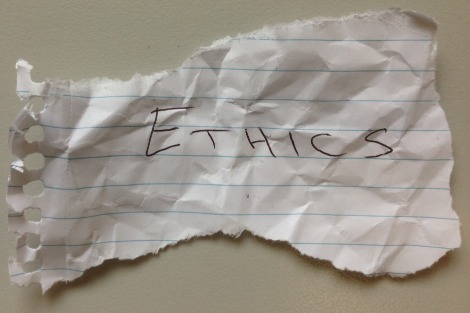
AUSTRALIA
- Andrew Hamilton
- 04 October 2013
16 Comments
In his recent article my Jesuit colleague Frank Brennan asked whether there is any ethical discussion to be had about stopping the boats. He proposed seven points that would give greater ethical coherence to the Government's 'shock and awe response'. The corollary of this position is that pressing for legal and practical changes to policy will not redeem the policy but will be a necessary and worthwhile exercise in harm minimisation.
READ MORE 
-
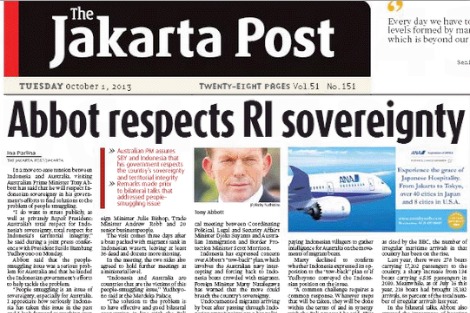
INTERNATIONAL
- Pat Walsh
- 03 October 2013
15 Comments
I suspect that Abbott's visit has left Indonesians with a poor impression of Australia. Dewi Fortuna Anwar, political adviser to Indonesia's Vice President Boediono, described the Abbott asylum seeker policy as 'callous'. Abbott's heavy handedness also contrasts sharply with the sensitive way Jakarta's popular governor, Jokowi, is managing complex change, for which Indonesians feel genuine enthusiasm.
READ MORE 
-

AUSTRALIA
- Tony Kevin
- 02 October 2013
15 Comments
Tony Abbott did handsomely in Jakarta. He was able convincingly to pitch the message that the bilateral relationship is much bigger and more important than the people smuggling issue, which he implicitly admitted had been mishandled by Australia. The national interest will be well served by the PM's deft handling of a difficult situation.
READ MORE 
-
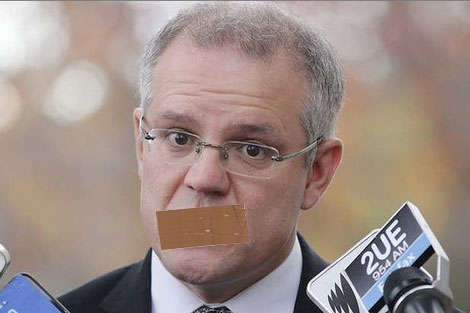
AUSTRALIA
- Tony Kevin
- 25 September 2013
9 Comments
During the election campaign, both major parties made much of their humanitarian concern to stop drownings by stopping the boats. Scott Morrison offered no words on this during the first Operation Sovereign Borders briefing on Monday. Nor did Labor's official commentators. Deaths at sea have apparently dropped off the radar — at least until the next maritime tragedy, which both parties will no doubt exploit to score points.
READ MORE 
-

ARTS AND CULTURE
- Barry Gittins
- 20 August 2013
5 Comments
Manus Island's hot, there's no protection for the weak. Though you think you're kind, it's true asylum that I seek. What's the point of difference between the church and state? Why do Salvos validate a policy of hate? History repeats, you Aussies did the same to Jews. Running from the Nazis, with their pleas for help refused.
READ MORE 
-

ARTS AND CULTURE
- Tim Kroenert
- 15 August 2013
2 Comments
As social commentary Elysium clearly has in mind any country that receives 'unwanted' arrivals of refugees. But it seems particularly timely in Australia, where the political response to asylum seekers who arrive by boat is simply to stop them. The response by the fictional bureaucrat Delacourt, to blow the smugglers' ships out of the air before they reach Elysium, certainly takes the 'stop the boats' mentality to its extreme.
READ MORE 
-

AUSTRALIA
- Frank Brennan
- 13 August 2013
1 Comment
'Like many Australians, I had hoped that the dastardly plan announced on 19 July would stop the boats in the short term, as a stop-gap measure. It is dismaying to learn that appropriate consultations had not occurred with Indonesia with the result that the very people who were to receive the shock and awe message are yet to receive it. There’s only one thing worse than shock and awe; that’s shock and awe that doesn’t work because you haven’t done your homework.' 43rd Barry Marshall Memorial Lecture, Trinity College Theological School, 14 August 2013.
READ MORE
-
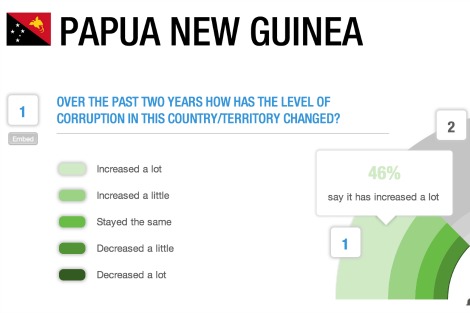
INTERNATIONAL
- Walter Hamilton
- 26 July 2013
11 Comments
A constitutional challenge in PNG to the resettlement agreement could quickly destroy any disincentive value as far as people smugglers are concerned. Under the country's constitution, foreigners may not be detained unless they have broken the law in entering the country. Since the asylum seekers are being sent there against their will they cannot be held to have entered illegally.
READ MORE 